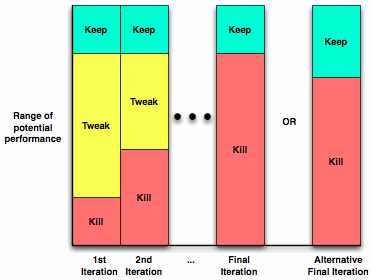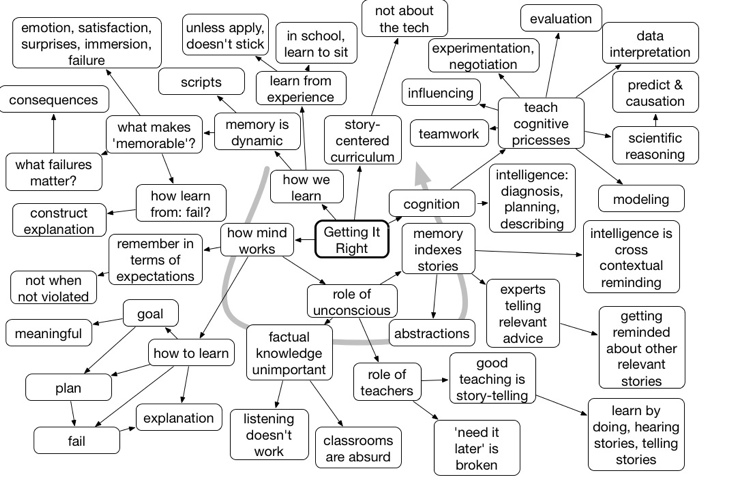A recent Ross Dawson blog post included a mention of building flexibility: “the more flexible the organization, the more able it is to succeed”. Which reminded me of some work I assisted Eileen Clegg with on extremophiles that we wrote up for Marcia Conner & James Clawson’s book, Creating a Learning Culture.
Along the lines of the biomimicry field, Eileen was inspired by her scientist husband’s work on organisms that live in extreme conditions of heat, salt, cold, and more. We riffed on five mechanisms and their corporate equivalents:
- ionic bonds: stronger bonds built upon attractions of opposites
- context-sensing: reading the environment for cues to change strategies
- heat-shock proteins: released under extreme conditions to repair structure
- inoculation: bring in what challenges you
- symbiosis: finding strategic partnerships
The reflection was that the mechanisms we were suggesting then, to make companies more resilient, were actually strategies making companies more flexible and adaptive. It’s been a number of years, so it’s interesting to me to see what we were recommending back then and it’s even more relevant now:
- leverage human complexity: encourage diversity and use it to drive richer solutions
- develop ‘wise’ information technology: use technology more strategically to complement our capabilities
- encourage always-on cross-mentoring: have mentoring networks to provide support across tough times and develop people in multiple dimensions
- tapping social and value networks: reach out across organizational boundaries to partners and customers and eliminate blockages
- strategic community-building: facilitating information flows
These are just the sort of activities I continue to push in conjunction with my ITA colleagues, to build flexibility in organizations to, as Ross says, achieve “competitive differentiation”. Wherever your inspiration may arise, the solutions appear again and again: find ways to motivate and empower people because you care about them and what you are doing, and they will provide you with valuable outcomes. What ways are you seeing, trying, and finding useful?

